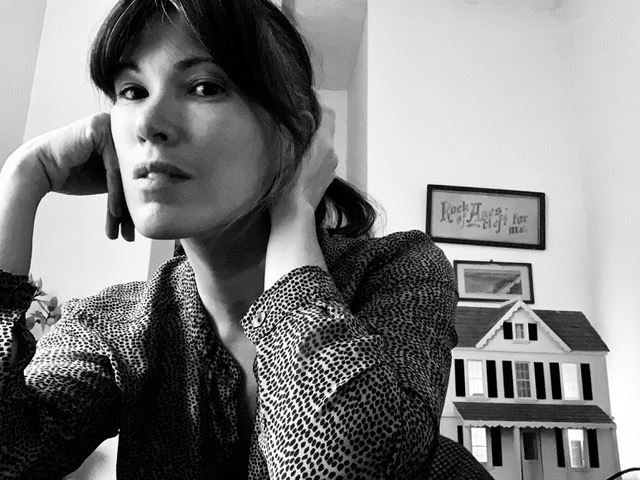
Jamieson Webster, PhD
(New York, NY)
The Desire for Change: From Freud’s Conversion to Today’s Conversion Disorder
7-9pm (CST): ZOOM Presentation and discussion
This program is cosponsored with MCPP (The Michigan Council for Psychoanalysis and Psychotherapy)
About the presentation: The diagnosis of Conversion Disorder is the last remnant left of hysteria in the DSM. However, the concept of conversion is key to Freud’s understanding of hysteria, perhaps even more important than the term hysteria itself which has a long history going back to the Greeks. Conversion can be seen as a question about psychoanalysis itself; not only as the kind of quasi-religious turning point in the strange life of a psychoanalyst—the move from analysand to psychoanalyst, from psychoanalyst to training analyst—but also what psychoanalysis is founded on in terms of its relationship to libidinal transformations. Conversion shows us the potential or power of the libidinal body, one that can wreak real havoc at times, but which is there— alive, unpacifiable. Conversion is about the demand for structural change.
While this talk will trace conversion as a psychoanalytic concept, I would also like to make a leap into our current troubled times: perhaps we might think of recent events from the Coronavirus Pandemic to Black Lives Matter—which center the body, its life and the care of it, at the heart of political and communal questions—as touching on a present day conversion disorder and the demand for radical change.
 Dr. Jamieson Webster is a psychoanalyst in private practice in New York City. She is the author of The Life and Death of Psychoanalysis (2011) and Conversion Disorder: Listening to the Body in Psychoanalysis (2018); she also co-wrote, with Simon Critchley, Stay, Illusion! The Hamlet Doctrine (2013). She teaches at the New School for Social Research and supervises doctoral students in clinical psychology at the City University of New York. She is a member of IPTAR and Das Unbehagen.
Dr. Jamieson Webster is a psychoanalyst in private practice in New York City. She is the author of The Life and Death of Psychoanalysis (2011) and Conversion Disorder: Listening to the Body in Psychoanalysis (2018); she also co-wrote, with Simon Critchley, Stay, Illusion! The Hamlet Doctrine (2013). She teaches at the New School for Social Research and supervises doctoral students in clinical psychology at the City University of New York. She is a member of IPTAR and Das Unbehagen.
Learning objectives:
-
Will know the history of the term conversion and its difference from other hysterical mechanisms.
-
Will understand the clinical implications of thinking about conversion disorder in terms of work with patients.
-
Will be able to trace these thoughts as they developed in Freud’s work from 1894 to 1938.
This is an intermediate level presentation
Fees
CCP members: free with annual $175 membership, payable at registration. Students:free with annual $125 membership, payable at registration.Fellows: free with annual $150 membership, payable at registration.Non-CCP members, single admission: $50Student non-members, single admission: $15
Continuing Education
This program is sponsored for Continuing Education Credits by the Chicago Center for Psychoanalysis. There is no commercial support for this program, nor are there any relationships between the continuing education sponsor, presenting organization, presenter, program content, research, grants or other funding that could be construed as conflicts of interest. Participants are asked to be aware of the need for privacy and confidentiality throughout the program. If the program content becomes stressful, participants are encouraged to process these feelings during discussion periods. The Chicago Center for Psychoanalysis maintains responsibility for this program and its content. CCP is licensed by the state of Illinois to sponsor continuing education credits for Licensed Clinical Social Workers, Licensed Social Workers, Licensed Clinical Professional Counselors, Licensed Professional Counselors, Licensed Marriage and Family Therapy Counselors and Licensed Clinical Psychologists (license no. 159.000941 and 268.000020 and 168.000238 Illinois Dept. of Financial and Professional Regulation).
Professionals holding the aforementioned credentials will receive 2.0 continuing education credits for attending the entire program. To receive these credits a completed evaluation form must be turned in at the end of the presentation and licensed psychologists must first complete a brief exam on the subject matter. No continuing education credit will be given for attending part of the presentation. Refunds for CE credit after the program begins will not be honored. If a participant has special needs or concerns about the program, s/he should contact Toula Kourliouros Kalven by January 14, 2020 at tkalven@ccpsa.org
References/Suggested Reading.
Webster, Jamieson (2018) Conversion Disorder: Listening to the Body in Psychoanalysis. New York: Columbia University Press. Webster, Jamieson (2019) “End Notes: What Palliative Care Looks Like in a Pandemic.” The New York Review of Books. April 24th, 2020. https://www.nybooks.com/daily/2020/04/24/end-notes-what-palliative-care-looks-like-in-a-pandemic/Dufourtmantelle, Anne (2019) In Praise of Risk (trans. S. Miller). New York: Fordhamn Books.Freud, Sigmund. (1894) 1995. “The Neuro-psychoses of Defence.” In The Standard Edition of the Complete Psychological Works of Sigmund Freud, 3:43–61.Leclaire, Serge. 1998. Psychoanalyzing: On the Order of the Unconscious and the Practice of the Letter (trans. P. Kamuf). Stanford: Stanford University Press.
Presented by
The Chicago Center for Psychoanalysis/CCP Program Committee: Carol Ganzer, PhD, Toula Kourliouros Kalven, Adina Bayuk Keesom, PsyD
The Chicago Center for Psychoanalysis is an IRS 501(C)(3) charitable organization, and expenses may be tax deductible to the extent allowed by law and your personal tax situation.
